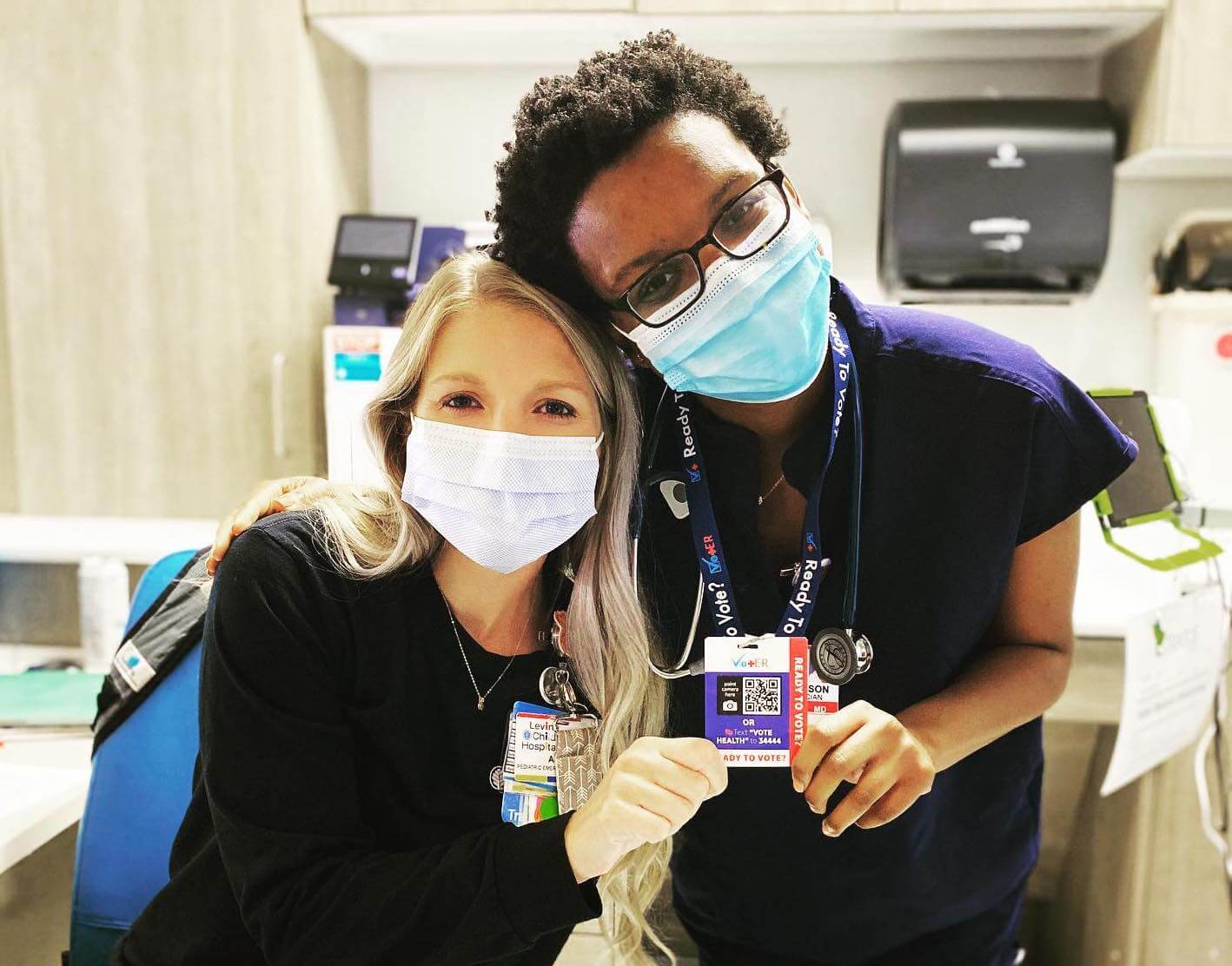civic health Fellowship
Step into the forefront of civic action.
As a healthcare provider, you hold a unique position of trust in American society, making you pivotal in engaging your patients in registering to vote.
The Vot-ER Civic Health Fellowship equips healthcare providers like you with the training, resources, and collaborative space needed to lead campaigns that mobilize patients towards civic engagement. Join a vibrant community of healthcare professionals dedicated to fostering a healthier democracy through proactive patient involvement in civic initiatives.

Fellowship Highlights
Guided by top-tier instructors in community organizing, you will emerge with a profound understanding of civic involvement, health equity concerns, and effective community mobilization techniques. Over eight months, from April to November, you will be trained and equipped to ignite change in your community through voter engagement.
ORGANIZING 101
Nobel Peace Prize-nominated activist Srdja Popovic, health organizing leader Pedja Stojicic, and community organizer Brian Archie teach tried-and-true organizing tactics that can be used inside and outside of the healthcare system.
TEAMWORK
Work alongside a team of your colleagues to turn your workplace or professional association into a center of voter registration and civic engagement.
NARRATIVE-BUILDING WORKSHOPS
Your story is an incredibly powerful mobilizing tool. Learn how to craft your “public narrative”—what makes you who you are and why you do this work—and how to share it with colleagues, organizational leadership, and the media.
CIVIC ENGAGEMENT PROJECT
Collaborate with healthcare peers to launch a local civic engagement campaign at your health institution or school. Past participants have used this space to workshop pitches to hospital leadership, partner with faculty to integrate voter access into the medical school curricula, and more.
Program Details
Application Deadline
The priority deadline for 2025 is March 16th. The final application deadline is March 31st.
Applications will be reviewed on a rolling basis, and we encourage applicants to apply as early as possible.
Faculty
Nobel Peace Prize-nominated activist Srdja Popovic, health organizing leader Pedja Stojicic, and organizer Brian Archie are the primary Fellowship instructors, along with a group of all-star guest presenters.
Teams
This fellowship requires individuals to be part of a team. Each member of a team should apply separately, and there will be a space in the application for you to list your team members. If you need assistance recruiting a team, please note that in your application and the Vot-ER team may reach out to support you.
Schedule
Sessions meet online approximately twice a month on Wednesdays from 6-7:30 pm Eastern from April to November.
The total time commitment is 5-10 hours per month, including attending lectures, small group work, and collaborating on team projects.
Investment
Our generous sponsors cover most costs; program fees cover the remainder. Vot-ER is committed to equity, offering sliding-scale fees for Fellows. Financial aid is available upon request, and no one is turned away due to cost. We encourage those with academic or institutional support or CME to seek full program coverage.
The program investment sliding scale is as follows:
FAQs
Nope! Just come ready to learn and collaborate.
You can indicate on your application that you need financial assistance. Last year we didn’t turn anyone away because of the cost, and we expect that everyone who needs help will receive an appropriate discount.
If you have additional questions about financial assistance, please email Leah Ford at leah@vot-er.org.
Nobel Peace Prize-nominated activist Srdja Popovic, health organizing leader Pedja Stojicic, and organizer Brian Archie teach the course, along with a group of all-star guest presenters.
All healthcare professionals are eligible for the Civic Health Fellowship, including:
We’ve heard from past fellows that this program has connected them to the community of like-minded professionals that they’ve long sought.
Plus, you’ll leave the course with:
E-mail Leah Ford at leah@vot-er.org and we’ll get back to you right away!
Social workers, nurses, residents, and interns: $200 ($100 if already active in Vot-ER)